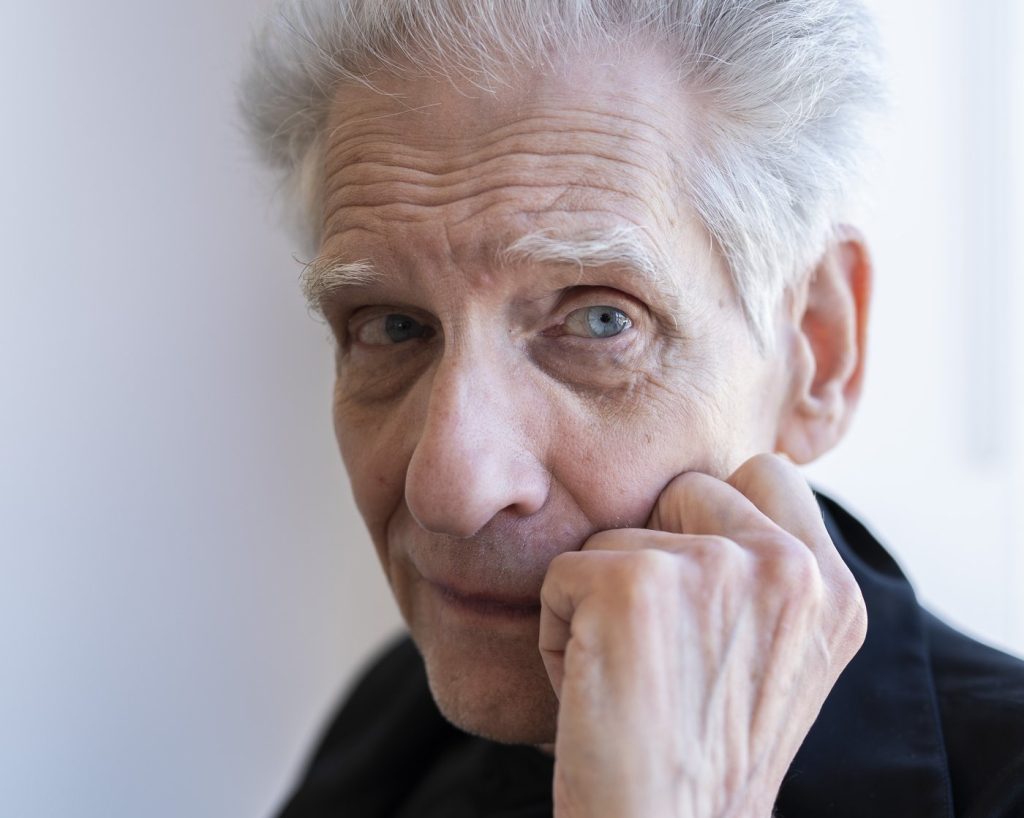At 82, Canadian filmmaker David Cronenberg, renowned for his body-horror classics such as "The Fly," "Dead Ringers," and "Videodrome," is confronting the reality of mortality more intimately than ever. Reflecting on his relationship with death, he remarked, "It's difficult to not be thinking about it," as he frequently reads about peers of his age passing away. Cronenberg's perspective on loss shifted significantly after the death of his wife, Carolyn, from cancer in 2017, a loss that profoundly impacted how he conceptualizes grief and the remnants of loved ones after their departure.
Initially believing that "Crimes of the Future" would be his last film, the depth of Cronenberg's grief prompted him to create "The Shrouds." This latest feature, which makes its U.S. theatrical debut on Friday and opens in Canada the following week, represents his personal exploration of grief, technology, and the desire to maintain connections with the deceased. According to Cronenberg, grief is a unique experience for everyone, and he aimed to portray his interpretation of it through cinema. "There are many great grief books, which I read, and none of them represented my experience of it," he said during an interview at the Toronto International Film Festival in the fall of 2024.
"The Shrouds" follows Karsh Relikh, played by Vincent Cassel, who invents a controversial technology that allows mourners to observe their loved ones' decaying corpses. When the grave of his deceased wife, Becca, portrayed by Diane Kruger, is disturbed, Karsh becomes fixated on uncovering the truth. This narrative intertwines Cronenberg's fascination with the human body’s decay with his personal experiences of love, loss, and the visceral nature of grief. Cassel's character is visually reminiscent of Cronenberg himself, complete with a similar hairstyle, further blurring the lines between life and art.
Kruger, who not only plays Becca but also her twin sister Terry and Karsh's AI assistant Hunny, explains that her multiple roles underscore the ways we continue to perceive our loved ones after loss. She remarked, "When you lose someone you love so much, I think you see them everywhere. You cannot unsee them." The film's intimate flashbacks reveal the harrowing reality of illness and loss, echoing actual moments from Cronenberg's life. She expressed a sense of discomfort while portraying these scenes, aware that the director was reliving his own painful memories through the filming process.
Cronenberg articulates the profound physical aspect of losing a romantic partner compared to losing one's parents, emphasizing that when a spouse dies, the loss extends beyond emotional grief to encompass the body itself: "It’s the loss of a body, not just a voice or a memory." In "The Shrouds," Karsh's deep fixation on his wife's remains speaks not only to his love but also to an inherent desire for control over mortality in an increasingly technological world.
Sandrine Holt, who plays Karsh's new love interest, Soo-Min, noted that the protagonist's obsession with his wife's remains is a commentary on contemporary society's struggle with loneliness and control through technology. She suggested that the film portrays how technology has influenced human interactions and coping mechanisms, ultimately contributing to a more isolated culture.
For Cronenberg, creating art represents an avenue to confront fears related to death. He believes that while creativity provides an illusion of control over life's uncertainties, it does not deliver true catharsis. "It’s satisfying on the level of creativity, but it’s not satisfying in the sense of catharsis," he stated, indicating a complex relationship with his creative endeavors.
An atheist, Cronenberg rejects religious interpretations of death, asserting that they often obscure the reality of mortality. He embraces a straightforward acknowledgment of death, which he describes as an "existentialist approach to life." The candid exploration of grief, loss, and the human condition in "The Shrouds" emerges as a significant reflection of Cronenberg's experiences and philosophies, inviting viewers to delve deeply into the complexities of human relationships faced with the inevitability of death.











